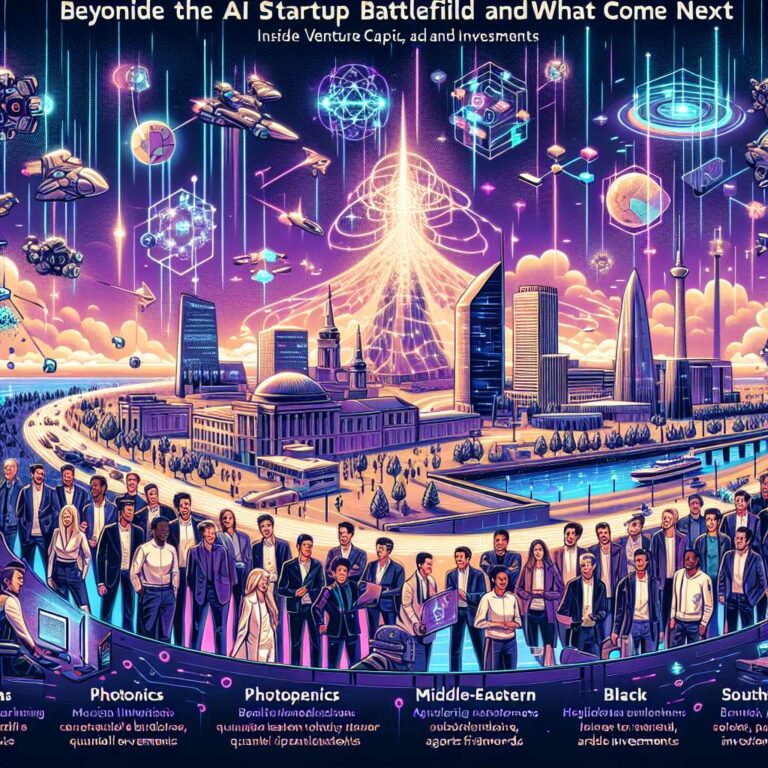Venture investment has swung decisively toward Artificial Intelligence, and Voima Ventures argues that 2025 marks the first time a single technology is consuming venture capital. Citing PitchBook, the firm notes that 71 percent of total U.S. VC deal value in Q1 2025 went to Artificial Intelligence and machine learning, and even excluding OpenAI’s record raise, Artificial Intelligence still took roughly half of invested capital and a third of deals. Globally, the pattern is similar: Artificial Intelligence startups are taking nearly two-thirds of venture capital, and Bloomberg reported that by October 2025 it was the first time in history that more than half of all venture dollars went to one theme. Yet the boom is highly concentrated: a handful of companies dominate flows, including OpenAI, Scale AI, xAI, Anthropic, Safe Superintelligence, Anduril, Mistral AI and Nscale, with Moonshot AI and Helsing also in the spotlight. Voima adds that 83 percent of global CEOs now list Artificial Intelligence as a top priority and nearly 100 million people already work in Artificial Intelligence-related roles.
Against this backdrop, the Nordics and Baltics are building across a full deep-tech stack. On hardware and compute, recent rounds include DataCrunch (€55 million, European Artificial Intelligence cloud), Agate Sensors (€5.6 million, spectral sensing), Tzafon (€8.4 million seed, browser automation infrastructure) and IQM (€600 million, quantum computers). In platform and tooling, examples include Lovable (Artificial Intelligence coding), Cambri (€8 million, product insights) and Encube (€20 million seed, tools for hardware design teams). Foundation model builders include Farang (€1.5 million, next‑gen LLM and SLM), FirstQFM (€1.2 million pre‑seed, quantum‑accelerated LLMs) and Interhuman AI (€2 million pre‑seed, a social intelligence layer). In agents and APIs, Hubert (€2.3 million seed), Kiku (€4 million seed), Noteless (€3.6 million Series A) and Tana (€13.6 million Series A) are moving, while vertical applications are drawing capital in areas such as Taito.ai (€2.3 million seed), Nordic Air Defence (€2.5 million seed) and Cerebriu (€15 million Series A).
Voima Ventures frames its investment lens around four pillars: a hardware and compute frontier spanning photonics, quantum and energy‑efficient sensing; a data and platform convergence layer that connects edge firmware, secure data and robotics to real‑time systems; domain‑vertical applications where hardware, software and expertise create defensible products; and a research‑to‑impact ladder that turns lab results into industrial scale. Looking ahead, the firm sees capital shifting from infrastructure to applications in regulated, data‑heavy sectors like health, finance, defence and legal tech, with Nordic examples already raising larger rounds. It highlights the rise of physical Artificial Intelligence that blends hardware, data and algorithms, citing one Citi analysis projecting 1.3 billion Artificial Intelligence robots by 2035 and 4 billion by 2050. A hardware renaissance, propelled by the EU Chips Act and NATO deep‑tech programs, could reinforce regional strengths, while value creation moves toward domain‑specific intelligence powered by proprietary data and specialized compute. Voima also emphasizes the human layer in healthcare and education and the role of Artificial Intelligence in planetary systems from energy to circular manufacturing. Still, bubble risks loom, with 95 percent of companies yet to see tangible return on Artificial Intelligence; execution, revenue paths and proprietary IP are essential.

